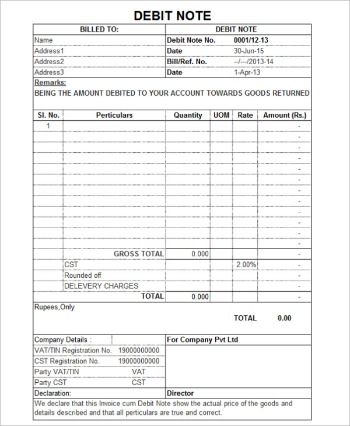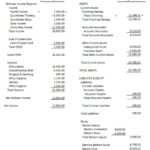
The statement itemizes the cash and other deposits made into the checking account of the business, as well as any expenses paid by the business. This includes everything from wages and salaries paid to employees to business purchases like equipment and materials. Bank statements also show expenses that may not have been included in financial statements, such as bank fees for account services. For lawyers, reconciliation in accounting is essential for ensuring that financial records are accurate, consistent, and transparent. While proper reconciliation is the standard for how law firms should handle all financial accounts, it is particularly important—and often required—for the management of trust accounts.
After fee and interest adjustments are made, the book balance should equal the ending balance of the bank account. You’ll need a few items to perform a bank reconciliation, including your bank statement, internal accounting records, and a record of any pending cash transactions (either inflows or outflows). Some bank services, including expedited payments, bank drafts, and in some cases paper bank statements, may come with additional bank fees.
What is reconciliation in accounting?
- The information on the bank statement is the bank’s record of all transactions impacting the entity’s bank account during the past month.
- To reconcile your bank accounts, you’ll first need a copy of your most recent bank statement and access to your business’s accounting records.
- You can also perform bank reconciliation by hand, meaning you’d manually compare your bank statement to your general ledger transaction by transaction.
- Some businesses create a bank reconciliation statement to document that they regularly reconcile accounts.
- Similarly, add any interest payments or bank fees to your business’s cash accounts to find your adjusted cash balance.
If you don’t see a balance of zero, QuickBooks helps you troubleshoot the errors and reconcile your accounts. How you choose to perform a bank reconciliation depends on how you track your money. Some people rely on accounting software or mobile apps to track financial transactions and reconcile banking activity. Others accounting final test use a paper checkbook, and balance it each month, to keep a record of any written checks and other transactions.
Bank reconciliation isn’t just important for maintaining accurate business what is cost accounting finances—it also ensures your customer and business relationships remain strong. Regular bank reconciliation double-checks that all payments have been accurately processed. This includes payments by customers to your company and payments from your company to employees, contractors, and other goods and services providers. Greg adds the $11,500 of deposits in transit to his bank statement balance, bringing him to $99,500. He also subtracts the $500 in bank fees from his financial statement balance, bringing him to $99,500 and balancing the two accounts. Greg’s January financial statement for the company shows $100,000 in cash, but the bank statement shows only $88,000.
For instance, if you use QuickBooks Online, you’ll use the reconcile function to pull up all your bank transactions during a period of time you specify. QuickBooks then shows you all the transactions you entered into the software during the same time period. You’ll compare the two lists and check a box next to each QuickBooks transaction that also shows up on your bank statement.
How to perform a three-way trust reconciliation
The information on the bank statement is the bank’s record of all transactions impacting the entity’s bank account during the past month. Accurate cash flow is essential for keeping a business running smoothly, so it’s important to be aware of all incoming and outgoing cash. A bank reconciliation is the process by which a company compares its internal financial statements to its bank statements to catch any discrepancies and gain a clear picture of its real cash flow.

Many banks allow you to opt for fee-free electronic bank statements delivered to your email, but your bank may mail paper bank statements for a fee. A three-way reconciliation is a specific accounting process used by law firms to check that the firm’s internal trust ledgers line up with individual client trust ledgers and trust bank statements. For lawyers, this process helps to ensure accuracy, consistency, transparency, and compliance. Bank account reconciliation is comparing your bank statement to your business’s internal list of transactions over a given time period. During bank reconciliation, you’ll compare the two accounts to ensure they reflect the same transaction details and cash flow amounts. If the accounts don’t match, you’ll need to find the source of the financial discrepancy, repair it, and compare the accounts again to see balance sheet template if they balance.
How often should you perform bank reconciliation?
FreshBooks accounting software helps you track income and expenses and generate reports and financial statements. Try FreshBooks for free to streamline your tax preparation and bank reconciliations today. A bank reconciliation statement is a financial document that summarizes your bank account transactions and internally recorded transactions, showing that the two records match. You don’t necessarily have to create a bank reconciliation statement every time you reconcile your accounts—if you perform bank reconciliation every day, you probably shouldn’t. Otherwise, though, statements are a good way to stay on top of your business’s finances.
Transposition error
He also finds $500 of bank service fees that hadn’t been included in his financial statement. By comparing your company’s internal accounting records to your bank statement balance, you can confirm that your records are accurate and analyze the reasons behind any potential discrepancies. Regularly reconciling your bank statements helps businesses detect potential issues with their financial recording system, making it easier to rectify those problems quickly.